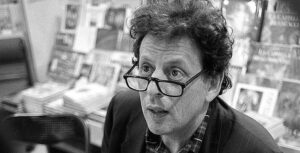
Composer Profile: Philip Glass, A 20th Century Minimalist Master
By David SalazarFew 20th century composers have had quite the successful run that Philip Glass has enjoyed.
Born on Jan. 31, 1937 in Baltimore, Maryland, the composer has become a major influence, his style imitated by composers in a wide range of creative fields.
Glass studied at the Juilliard School and then went to Paris on a Fulbright Scholarship to study with Nadia Boulanger. He would develop his own singular style that would extend to his approach with theatrical works and opera. In this vein, he created a trilogy of operas on famed personalities in history that transcended familiar narrative conventions.
In sum, he has created over a dozen operas (as well as chamber operas) and has also composed music for numerous films. His work has yielded nominations for Oscars and Golden Globes; he won the Golden Globe for Best Original Score for his work on “The Truman Show” in 1998. His work on “The Hours” also yielded an award for Film Music at the BAFTAs.
Throughout his career he has composed close to a dozen symphonies and concertos, numerous string quartets, and many chamber music pieces.
Major Works
Of Glass’ operas, “Einstein on the Beach” is undeniably the one with the most fame due to its revolutionary status. However, in recent years it is “Satyagraha” that has started to emerge as the composer’s most beloved opera as it has seen revivals around the world.
Read More on Glass
Read More on “Einstein on the Beach”
Watch and Listen
Here is a recording of “Satyagraha.”
And here is “Einstein on the Beach.”
Categories
Opera Wiki

